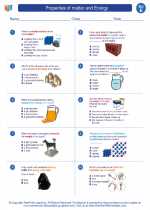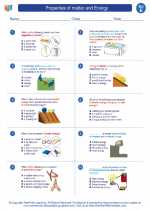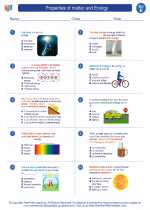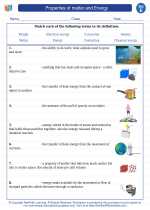Learned Behavior
Learned behavior refers to the actions and responses that an organism develops as a result of experience, practice, and observation. Unlike innate behaviors, which are inherited and instinctual, learned behaviors are acquired and modified through interactions with the environment and other organisms.
Types of Learned Behaviors
- Imprinting: This is a type of learned behavior where an animal forms a strong attachment to another organism, typically its parent or caregiver, during a critical period early in life.
- Habituation: This occurs when an organism decreases its response to a stimulus after repeated exposure, realizing it is not a threat or does not hold value.
- Classical Conditioning: In this type of learning, an organism associates a previously neutral stimulus with a meaningful one, leading to a learned response.
- Operant Conditioning: Also known as instrumental conditioning, this involves learning through reinforcement or punishment, where behaviors are strengthened or weakened based on their consequences.
- Insight Learning: This is a type of problem-solving behavior where an organism applies past experiences to a new situation to achieve a goal.
Examples of Learned Behaviors
There are numerous examples of learned behaviors in the animal kingdom. These can include:
- Humans: Language acquisition, cultural traditions, and social norms
- Birds: Song learning, nest building, and foraging techniques
- Primates: Tool use, social hierarchies, and communication methods
- Dolphins: Cooperative hunting strategies and use of objects for play
- Dogs: Obedience training, agility courses, and scent detection
Study Guide
To understand learned behavior, it is important to consider the following key points:
- Describe the difference between innate and learned behaviors.
- Identify and explain the different types of learned behaviors, providing real-life examples for each.
- Discuss the importance of learned behaviors for the survival and adaptation of organisms in their environments.
- Compare and contrast the concepts of classical conditioning and operant conditioning, highlighting their similarities and differences.
- Analyze the role of learned behaviors in human society and the impact of culture, education, and experience on shaping behavior.
By studying and understanding learned behaviors, you will gain insights into the complex and fascinating ways in which organisms adapt and thrive in their surroundings.
[Learned Behavior] Related Worksheets and Study Guides:
.◂Science Worksheets and Study Guides Fifth Grade. Properties of matter and Energy
Study Guide Properties of matter and Energy
Properties of matter and Energy  Worksheet/Answer key
Worksheet/Answer key Properties of matter and Energy
Properties of matter and Energy  Worksheet/Answer key
Worksheet/Answer key Properties of matter and Energy
Properties of matter and Energy  Worksheet/Answer key
Worksheet/Answer key Properties of matter and Energy
Properties of matter and Energy  Vocabulary/Answer key
Vocabulary/Answer key Properties of matter and Energy
Properties of matter and Energy  Vocabulary/Answer key
Vocabulary/Answer key Properties of matter and Energy
Properties of matter and Energy 

 Worksheet/Answer key
Worksheet/Answer key
 Worksheet/Answer key
Worksheet/Answer key
 Worksheet/Answer key
Worksheet/Answer key
 Vocabulary/Answer key
Vocabulary/Answer key
 Vocabulary/Answer key
Vocabulary/Answer key

The resources above cover the following skills:
PHYSICAL SCIENCE (NGSS)
Matter and Its Interactions
Students who demonstrate understanding can:
Develop a model to describe that matter is made of particles too small to be seen.